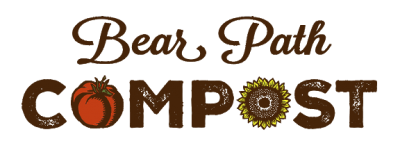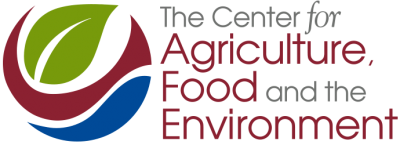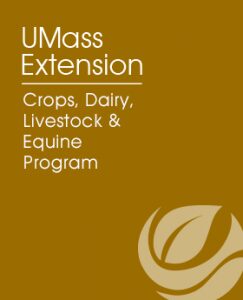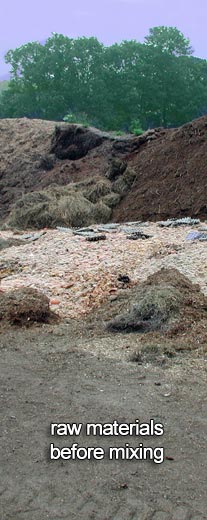2016 Summer Meeting – Speaker Information
Handouts are posted below
AGENDA
SPEAKERS
~~~
2016 Summer Meeting
Friday August 5th
~~~
C O M P O S T
Turning Waste into Wealth
Bear Path Farm, West Whately and UMass Amherst

The SWCS Southern New England Chapter 2016 Summer Meeting will feature a tour of the operations at Bear Path Farm, led by farm owner Bill Obear and partner Mike Mahar.
Bear Path Farm is recognized throughout the Pioneer Valley of Massachusetts as a dedicated producer of high quality, compost for residential, agricultural and commercial applications for 20 years. But many people are unaware of Bill’s commitment to sustainable forest management; of the farm’s 50 acres, 35 are forested with a diverse mix of hardwoods. Bear Path Farm has been an official Tree Farm since 1984 and takes pride in the fact that its modest woodland is being sustainably managed under the guidelines of the American Tree Farm System and is certified as such by the Forest Stewardship Council (FSC). By meeting the rigorous FSC forest management standards, Bear Path Farm reaps multiple environmental benefits for its forestland as well as for the greater good.
In 2015 the compost operation transitioned into Bear Path Compost, LLC. The location remains the same; what’s changed is the addition of two new faces, Mike and Pete Mahar, as Bill’s new partners and owners of Bear Path Compost. The Mahar brothers also operate Poplar Hill Farm and have the same zeal and attention to detail that Bill has demonstrated over the last 20 years.
Handout: Bear Path Compost History
Mike and Bill will talk about their feedstocks and mixing & turning techniques; and they will open up and probe a few windrows for temperature. “Of course we have other things to go over, but show and tell is basically what our tour will be all about.”
Handout: Compost Use Notes
Handout: Compost as a Mulch in Ornamental Landscapes

Katie Campbell-Nelson, a UMass Extension educator and vegetable specialist at the Center for Agriculture, Food and the Environment, will provide practical information on site, including a demonstration of how to properly collect samples for analysis and guidance on interpreting compost test results.
The residues-to-riches story will continue at UMass Amherst. Attendees will caravan or carpool to Lot 45; half-day parking permits will be distributed at the farm. Presentations and Lunch will be in Room 308 at Holdsworth Hall.

Geoff Kuter, President and General Manager at Agresource, Inc., will provide an overview of compost characteristics and the basics of the composting process, different types of facilities in the region (e.g. biosolids vs. leaf and yard wastes), the technologies and equipment that are used.
Handout: Composting Principles (slides) 2.9 MB
Handout: Composting Principles (for taking notes) 1.8 MB
Hotze Wijnja, an Environmental Chemist at the Massachusetts Department of Agricultural Resources, has been involved with the development and implementation of the regulations at 330 CMR 31.00 promulgated in 2015 to address plant nutrient management. He will provide an overview of the regulations and discuss the implications of the requirements as they relate to the application of compost.
Handout: Plant Nutrient Regulations 1.7 KB
Handout: Turf & Lawns Factsheet
Handout: Information Sheet for Agricultural Land
 A video will be shown during lunch: Low Cost Aerated Static Composting Systems for Small Acreage Equine Operations by Masoud Hashemi and Atakan Kadi of UMass Extension. Masoud Hashemi is an Associate Professor in the Crops, Dairy, Livestock, and Equine Program specializing in sustainable food and farming. Through a 319s grant funded by Massachusetts Department of Environment Protection, UMass Extension implemented two Aerated Static Pile (ASP) composting systems, also known as forced aeration, to manage livestock manure and bedding produced on Blue Star Equiculture Farm in Palmer, Massachusetts.
A video will be shown during lunch: Low Cost Aerated Static Composting Systems for Small Acreage Equine Operations by Masoud Hashemi and Atakan Kadi of UMass Extension. Masoud Hashemi is an Associate Professor in the Crops, Dairy, Livestock, and Equine Program specializing in sustainable food and farming. Through a 319s grant funded by Massachusetts Department of Environment Protection, UMass Extension implemented two Aerated Static Pile (ASP) composting systems, also known as forced aeration, to manage livestock manure and bedding produced on Blue Star Equiculture Farm in Palmer, Massachusetts.
Geoff Kuter will make a second presentation after lunch about the benefits of using compost and how compost is being used, including non-agricultural uses such as site remediation, and low impact development projects including wetland restoration and storm water management projects.
Handout: Compost Characteristics & Uses (slides) 1.6 MB
Handout: Compost Characteristics & Uses (for taking notes) 3.4 MB

The event will conclude with the Southern New England Chapter Annual Meeting, which is open to all. FY 2017 Board of Directors election results will be announced. Other agenda items will include discussion of the 2017 Winter conference, long-term goals and the FY17 budget.
In the spirit of conservation, only the agendas will be provided in hard copy. Please print any information you want to have on hand.
Certificates of Attendance will be distributed before the Chapter Meeting; these will show the agenda to document 3 contact hours of professional development.
AGENDA:
| 8:30 a.m. | Sign In at Bear Path Farm and pick up UMass Parking Permit |
| 8:50 a.m. | Greetings and Acknowledgments |
| 9:00 a.m. | Tour of Bear Path Compost Bill Obear and Mike Mahar |
| 9:30 a.m. | Compost Analysis and Interpretation Katie Campbell-Nelson |
| 10:00 a.m. | Caravan/Carpool to UMass Amherst – – park in Lot 45 Reconvene at Holdsworth Hall Room 308 See DIRECTIONS pages 4-6 for map, aerial and narrative guidance. |
| 10:40 a.m. | Greetings and Acknowledgements II |
| 10:45 a.m. | Composting Principles Geoff Kuter |
| 11:20 a.m. | Plant Nutrient Regulations Hotze Wijnja |
| 12:00 p.m. | Serve Lunch |
| 12:15 p.m. | Lunchtime Video: Low Cost Aerated Static Composting Systems for Small Acreage Equine Operations Masoud Hashemi and Atakan Kadi |
| 12:45 p.m. | Compost Characteristics and Uses Geoff Kuter |
| 1:15 p.m. | Wrap Up – – distribute Certificates of Attendance |
| 1:25 p.m. | Southern New England Chapter Annual Meeting |
| 1:45 p.m. | Meeting Adjourned! |
Certificates of Attendance will include this agenda to document 3 contact hours of professional development.
The SNEC Board of Directors would like to thank all of our fabulous speakers for their energy and expertise!
Speaker Biographies and Contact Information (PDF)
Workshop and Presentation Descriptions and PDFs
Keynote Address: Adapt CT – Outreach Efforts for Resilience and Adaptation (6 MB) | CT Sea Grant, the Center for Land Use Education and Research (CLEAR) and UConn Extension have partnered to develop Adapt CT, a unique collaboration to bring information, interaction and dialogue to the most pressing resilience and adaptation issues faced in CT. This presentation will focus on the numerous and challenging problems raised by stakeholders across CT and how we are working to move forward on many of these resilience issues.
– – -> Juliana BARRETT | Extension Educator, UConn Sea Grant Program
Soil Workshop #1: Getting to Know Soils in an Urban/Suburban Environment (5 MB) | Exploration of the unique hazards faced by urban soils and of the many benefits they offer. Ideas for improvement and protection to sustain a healthy urban environment for the future. Overview of urban soil types, mapping and practical measures to take when working with them.
“Urban soils are under unique stresses, but they give a lot too!”
– – -> Lisa KRALL | Resource Soil Scientist, USDA Natural Resources Conservation Service
Sustainability and Urban Forestry (5 MB) | What makes for a sustaining urban forest? That answer is as complicated as answering what makes an urban forest – as one considers what it takes for a tree to thrive in today’s dynamic urban environments.
– – -> Chris DONNELLY | Urban Forestry Coordinator, CT DEEP Division of Forestry
Sustainable Stormwater BMPs from the Municipal Perspective (4 MB)| Rarely is the sustainability and cost of maintenance by the cities, towns and private parties who will eventually own and maintain them a consideration prior to installation of stormwater management BMPs. Case studies of local projects provide a real-life view of storm water management challenges and practical measures implemented to resolve them.
– – -> Charles EATON | Director of Municipal Services, CME Associates
Soil Workshop #2: Urban Soil Health and Permaculture/Agriculture in Urban Areas (7 MB) | A look at managing the urban landscape to improve soil function and nutrient cycling, and to increase carbon sequestration, infiltration and water holding capacity. Permaculture, the development of agricultural ecosystems intended to be sustainable and self-sufficient, will be highlighted.
“I have a passion for conservation, primarily through soil health and ecosystem restoration. I am an avid believer that humans, while widely considered the problem to environmental issues, can also be the solution to them; and that we can, through the facilitation of understanding, improve the planet we live on. It is with this torch I carry myself in my life and my career as a conservationist. Become the change you want to see in the world, and see it done.”
– – -> Raymond COVINO | District Conservationist and Soil Health Specialist, USDA NRCS
Municipal Resiliency: Local Problems, Local Actions | Seeing the impacts of climate change first hand, municipal and regional leaders are adapting to the changes at the local level. This session will cover the relationship between adaptation and land-use planning, and a recent resiliency project: a Low-Impact Development Design Manual for the town of Morris (funded by CIRCA and overseen by NHCOG. Attendees will learn about starting the adaptation planning process, where to find tools and informative case studies.
– – -> Joanna WOZNIAK-BROWN | Planning Assistant, Northwest Hills Council of Governments (NHCOG)
Bringing Wetlands to Market: Examining the Role of Nitrogen in Blue Carbon (5 MB) | Coastal wetlands have carbon sequestration rates three to five times greater than tropical rain forests; but excess nitrogen inputs and other stressors have the potential to alter carbon cycling and storage within wetlands. Bringing Wetlands to Market is a collaborative project that provided data and a model for predicting carbon uptake rates (and greenhouse gas fluxes) from coastal wetlands.
– – -> Katelyn SZURA | Graduate Student, URI Moseman-Valtierra Laboratory
Practical Applications for Drones in Data Collection (5 MB) | Discussion of Unmanned Aircraft Systems (i.e. drone technology), the regulatory environment and examples of commercial grade products delivered for clients. Overview includes inspection and mapping for civil/environmental projects, documentation, stakeholder engagement and general considerations for planning and executing successful missions. Example products & deliverables include Point Cloud/3D renderings, ortho-mosaics and elevation models.
– – -> Jon BUDRESKI | Co-Founder and Director of Business Development, AirShark
–>> AGENDA <<–
| 8:00 a.m. | Registration | Exhibits & Networking | Breakfast | |
| 9:00 a.m. | Welcome and Opening Remarks | |
| 9:10 a.m. | Keynote Address: Adapt CT – Outreach Efforts for Resilience and Adaptation (PDF, 6 MB)
Juliana BARRETT | UConn Sea Grant Program |
|
| 9:30 a.m. | Soil Workshop #1: Getting to Know Soils in an Urban/Suburban Environment (PDF, 5 MB)
Lisa KRALL | USDA NRCS |
|
| 10:30 a.m. | Sustainability and Urban Forestry (PDF, 5 MB)
Chris DONNELLY | CT DEEP |
|
| 11:00 a.m. | Break | |
| 11:15 a.m. | Sustainable Stormwater BMPs from the Municipal Perspective (PDF, 4 MB)
Chuck EATON | CME Associates |
|
| 12:15 p.m. | Lunch | Exhibits & Networking | |
| 1:00 p.m. | Soil Workshop #2: Urban Soil Health and Permaculture/Agriculture in Urban Areas (PDF, 7 MB)
Raymond COVINO | USDA NRCS |
|
| 2:30 p.m. | Break | |
| 2:40 p.m. | Municipal Resiliency: Local Problems, Local Actions
Joanna WOZNIAK-BROWN | Northwest Hills Council of Governments |
|
| 3:10 p.m. | Bringing Wetlands to Market: Examining the Role of Nitrogen in Blue Carbon (PDF, 5 MB)
Katelyn SZURA | URI Moseman-Valtierra Laboratory |
|
| 3:40 p.m. | Break | |
| 3:45 p.m. | Practical Applications for Drones in Data Collection (PDF, 5 MB)
Jon BUDRESKI | AirShark |
|
| 4:25 p.m. | Closing Remarks Certificates of Attendance will be available at the door at the end of the program. |
|
| 4:45 p.m. | Southern New England Chapter Meeting – Open to All |
BROCHURE
Speaker Biographies and Contact Information


Conservation NewsBriefs
-
Rethinking stormwater — from waste to treasure
Source: Conservation News Briefs Published on 2024-07-25
-
5 reasons to seed cover crops after specialty crops
Source: Conservation News Briefs Published on 2024-07-25
-
Smart soil can water and feed itself
Source: Conservation News Briefs Published on 2024-07-25
-
Program pays Illinois farmers to improve soil health
Source: Conservation News Briefs Published on 2024-07-25
-
Driest place on Earth witnesses flowers blooming for first time in decade
Source: Conservation News Briefs Published on 2024-07-25


